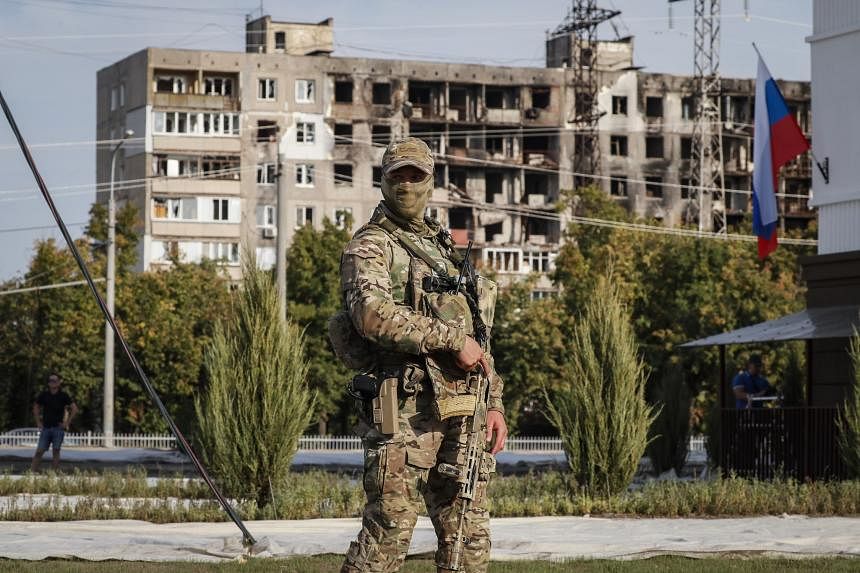NEW YORK - Russia's interrogation, detention and forced transfers of Ukrainian civilians through a system of so-called filtration to Russia or areas that it controls in Ukraine constitute war crimes and potential crimes against humanity, a rights group has said in an extensive report documenting the abuses.
The 71-page report released this past week by Human Rights Watch adds to recent reporting by the New York Times and other news outlets about the treatment and forcible relocation of thousands of Ukrainian civilians by Russian troops or officials from Kremlin-linked breakaway republics in the country's east.
Some Ukrainian civilians were rounded up from their homes, shelters or the street and sent to filtration centres, according to the report.
Others were told they had to undergo the filtration process in order to escape active fighting, it said.
The Ukrainians who were detained and sent to Russia under the system included many citizens of Mariupol, a southern city that was besieged and bombarded for weeks in the first months of the war, the report's authors found.
The Russian Ministry of Defence has framed the deportation of Ukrainians as part of a humanitarian relief effort.
Russia in April shut down the offices of Human Rights Watch in the country, along with those of other nongovernmental organisations.
The total number of Ukrainians forcibly sent to Russia remains unclear.
Secretary of State Antony Blinken in July estimated that 900,000 to 1.6 million Ukrainian citizens - including 260,000 children - had been questioned, detained and deported against their will.
Last month, the State Department and researchers from Yale University said in a joint report that they had identified 21 sites in eastern Ukraine that were being used as part of the filtration system.
Human Rights Watch said in its report that many Ukrainian civilians had been hoping to travel to Ukrainian-controlled territory when they were transported to Russia against their will.
Some went to Russia voluntarily with the aim of eventually making it to other European countries, the report's authors wrote.
For the report, the rights group interviewed 47 people who went to Russia, went through the filtration process or had friends or family who had been transferred to Russia.
It also interviewed eight lawyers and activists who have been helping newly arrived Ukrainians leave Russia, along with dozens of civilians from Mariupol who were able to escape the area without undergoing filtration.
Civilians who were forced to go through Russia's filtration system were required to give up biometric data, had their phones forcibly searched and were subject to invasive questioning, the report said. THE NEW YORK TIMES

